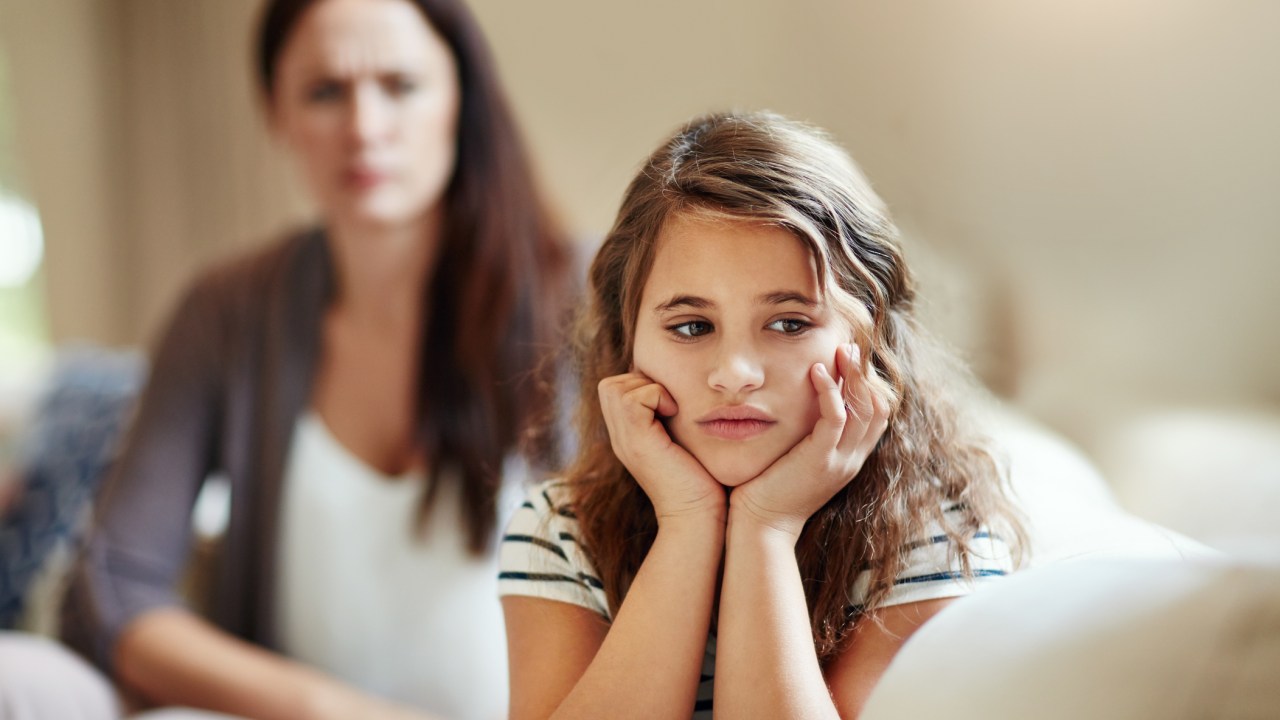The phrase 1 in 4 parents still think is ok to use on their kids
"As a kid, nothing scared me more than hearing my mum open the utensil drawer." A new study has raised the question, should we still be using this as a form of punishment?

As a child, nothing scared me more than hearing my mum open the utensil drawer as she reached for the wooden spoon.
She’d never smack me with it, but the threat alone was enough to straighten me up and stop me from continuing with any mischief I may have been getting up to.
With parents on the cusp of the Baby Boomer and Gen X generations, it seems a seismic shift is underway in Australia when it comes to disciplining children.
Want to join the family? Sign up to our Kidspot newsletter for more stories like this.
“Do you want a smack?”
The UN Convention on the Rights of the Child frowns upon all forms of physical discipline, branding even the mildest smacking as a violation of child rights. Strikingly, 65 nations have flat-out banned such practices.
Yet, in Australia, parents are legally permitted to employ "reasonable force" for disciplining their children, making the younger generation the only one left without legal safeguards against physical punishment.
This departure from international norms prompted an in-depth study to gauge the prevalence and attitudes towards physical punishment in the Southern Hemisphere.
Understanding physical discipline
Physical discipline, which includes actions such as smacking, pinching, slapping, or using objects like wooden spoons and belts, continues to be deeply ingrained in Australian parenting.
Surprisingly, six in ten Australians between 16–65 years have encountered four or more instances of physical discipline during their childhood.
RELATED: Smacking leads to long-term harm in kids

A generational shift
As the winds of change reshape parenting norms, younger generations are at the forefront of a paradigm shift.
The study indicates that parents aged 25–34 are less inclined to resort to physical discipline than their older counterparts.
Notably, only 14.4% of parents under 24 reported using physical discipline, marking a substantial departure from tradition.
Changing attitudes
While one in four Australians still subscribes to the belief that physical discipline is necessary, there is a ray of hope.
The majority, 73.6%, reject this old-fashioned approach.
And a clear generational distinction emerges, with only 22.9% of those aged 35–44 supporting the necessity of physical discipline, compared to a substantial 37.9% of those over 65.
The research, however, unveils a stark reality, with individuals facing socioeconomic challenges being 2.3 times more likely to advocate for the necessity of physical discipline.
This highlights the pressing need for targeted interventions to break the cycle of violence within marginalised communities.
RELATED: Discipline is the worst part of parenting

A ripple effect
A troubling pattern emerges as parents who experienced physical discipline in their childhood are not only more likely to endorse its necessity but also more prone to employing it with their own children.
This transgenerational approach to discipline emphasises the urgency for intervention and systemic change.
Time for a change
Promisingly, legal reform aligns with evolving community attitudes.
Younger Australians, less inclined to perceive physical discipline as necessary, indicate a societal openness to prohibiting this common form of punishment.
The call for all states and territories to enact legal reforms and safeguard the rights of Australian children is gaining momentum.
The proof is in the pudding
In an article published by Kidspot earlier in the year, we learned that smacking leads to long-term harm in children.
University of Melbourne psychiatry professor Sophie Havighurst, lead author of the report 'Corporal Punishment of Children in Australia,' argues for legislative reform, urging Australia to follow the 65 countries that have banned physical discipline.
Havighurst notes its adverse effects on child development, mental health, and societal issues, stating, "Numerous studies have shown [it's] linked with mental health problems, negative parent-child relationships, aggression, antisocial behaviour, impaired cognitive ability, low self-esteem and, even in adulthood, domestic violence."
"OMG The world has gone mad"
However, any readers were quick to refute the study's findings with anecdotal evidence.
One woman exclaimed, "Oh my god. The world has gone MAD. We were given smacks if we crossed the line as kids. Never flogged, just smacked and I believe my siblings and I turned out good, respectful humans."
"My generation got smacked most of us went on to have a good honest life," shared another.
"The next generation, my children got smacked, most again turned out to be great humans, now, no smacking allowed look what's happening. It's not rocket science guys."
And another wrote: "A smack never hurt anyone, it taught us right from wrong.
"I think that’s the problem with kids today, they have no respect and they know you can’t touch them."
The future of parenting
Amidst resistance from those yearning for the disciplinary approaches of yesteryear, Australia's parenting landscape is undergoing a profound cultural shift, signalling a growing awareness of the lasting repercussions associated with physical discipline.
As we grapple with this societal transformation, the pivotal role of respect, communication, and empathy in parenting comes to the forefront, shaping a new era characterised by gentler approaches to child-rearing in Australia.
More Coverage
Originally published as The phrase 1 in 4 parents still think is ok to use on their kids




